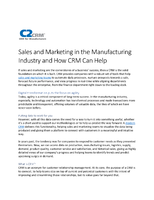Two Hydrogen Standards approved by ASTM gaseous fuels committee.
Press Release Summary:
ASTM International Committee D03 on Gaseous Fuels approved 2 new standards for hydrogen fuel industry: ASTM D7650, Test Method for Sampling of Particulate Matter in High Pressure Hydrogen Used as a Gaseous Fuel with an In-Stream Filter, and ASTM D7651, Test Method for Gravimetric Measurement of Particulate Concentration of Hydrogen Fuel. Both address critical stakeholder needs for sampling and determination of particulate matter in hydrogen fuel used as fuel cell feed gas.
Original Press Release:
ASTM Gaseous Fuels Committee Approves Two New Hydrogen Standards
W. CONSHOHOCKEN, Pa.-ASTM International Committee D03 on Gaseous Fuels recently approved two new standards for the hydrogen fuel industry: ASTM D7650, Test Method for Sampling of Particulate Matter in High Pressure Hydrogen Used as a Gaseous Fuel with an In-Stream Filter, and ASTM D7651, Test Method for Gravimetric Measurement of Particulate Concentration of Hydrogen Fuel.
Subcommittee D03.14 on Hydrogen and Fuel Cells, part of Committee D03, developed both standards to address critical stakeholder needs for sampling and determination of particulate matter in hydrogen fuel used as a fuel cell feed gas.
"Specifications for the amount of particulate matter allowed in hydrogen fuel for fuel cell vehicles currently exist, however, standardized procedures for collecting and measuring particulate matter specifications did not exist," said Jacquelyn Button, project engineer, California Fuel Cell Partnership and chair of D03.14.
"Regulatory bodies, analytical laboratories and other stakeholders will use ASTM D7651 to determine the amount of particulate matter in hydrogen fuel," explained Button. "ASTM D7650 allows the user to collect particulates directly from the fueling nozzle, providing a representative sample of particulates that may be in the hydrogen fuel."
Button encourages participation in the round robin test efforts for ASTM D7650 and ASTM D7651 as well as for other sampling and analytical procedures that the subcommittee is developing. The subcommittee is nearing completion on several other standards impacting the hydrogen fuel community including those for gas sampling, volatile contaminant analysis and particulate compositional analysis.
To purchase ASTM standards, visit www.astm.org and search by the standard designation number, or contact ASTM Customer Relations (phone: 610-832-9585; service@astm.org). ASTM International welcomes and encourages participation in the development of its standards. For more information on becoming an ASTM member, visit www.astm.org/JOIN.
ASTM International is one of the largest international standards development and delivery systems in the world. ASTM International meets the World Trade Organization (WTO) principles for the development of international standards: coherence, consensus, development dimension, effectiveness, impartiality, openness, relevance and transparency. ASTM standards are accepted and used in research and development, product testing, quality systems and commercial transactions.
View this release on the ASTM Web site at www.astmnewsroom.org.
ASTM Committee D03 Next Meeting: June 20-22, 2011, Baltimore, Md.
Technical Contact: Jacquelyn Button, California Fuel Cell Partnership, West Sacramento, Calif., Phone: 916-375-7421; jbutton@cafcp.org
ASTM Staff Contact: Brynn Murphy, Phone: 610-832-9640; bmurphy@astm.org
ASTM PR Contact: Barbara Schindler, Phone: 610-832-9603; bschindl@astm.org




